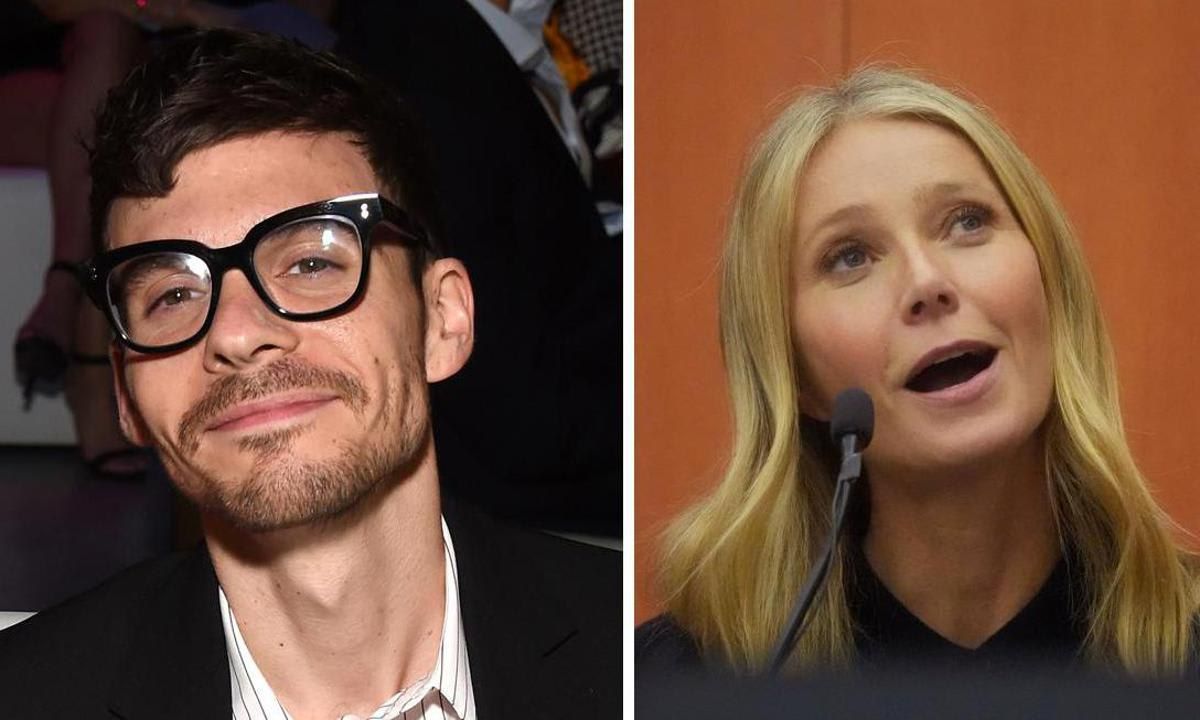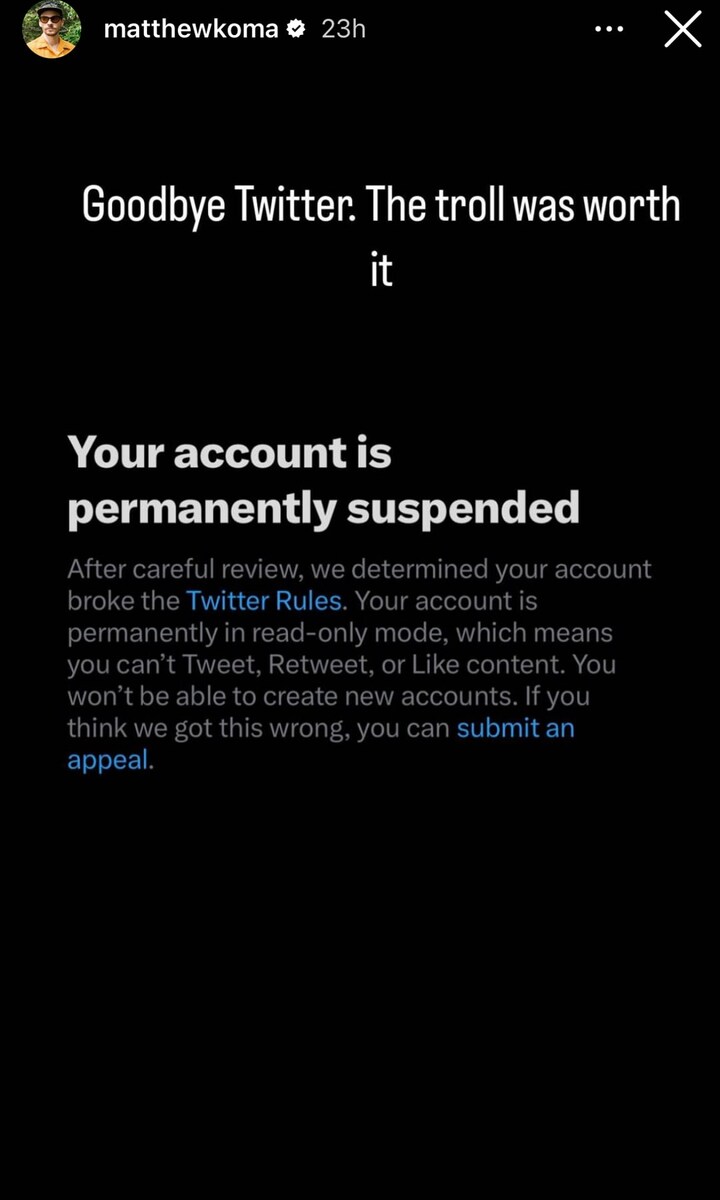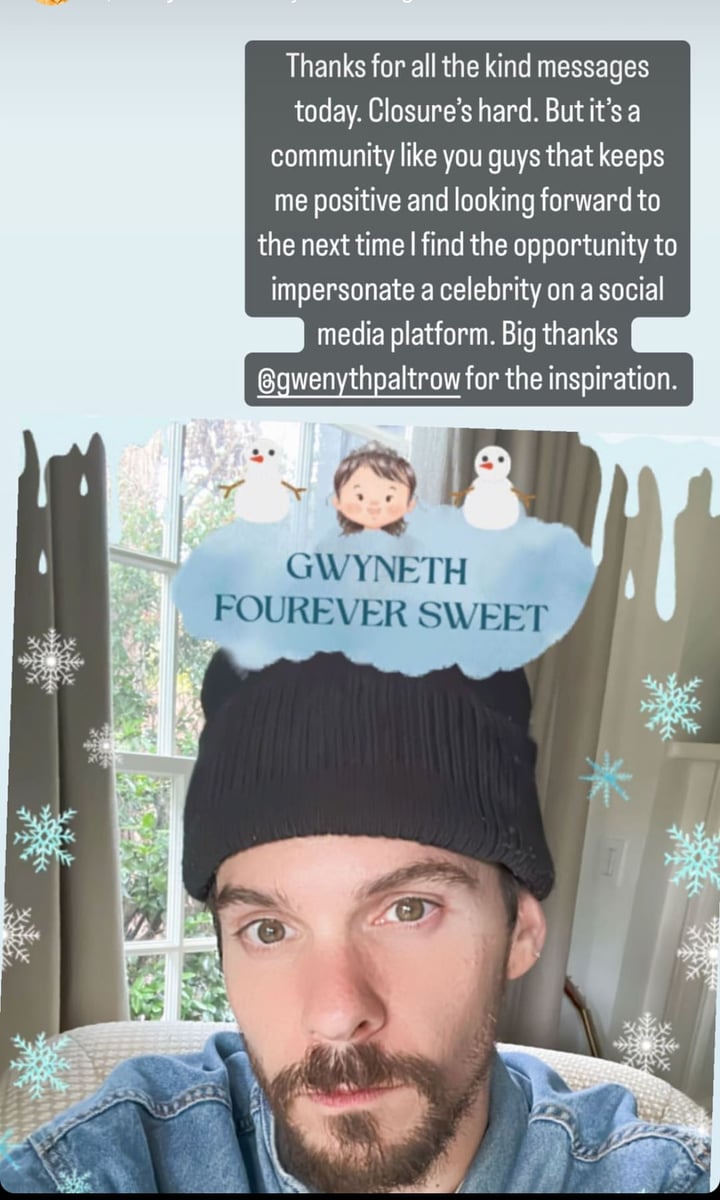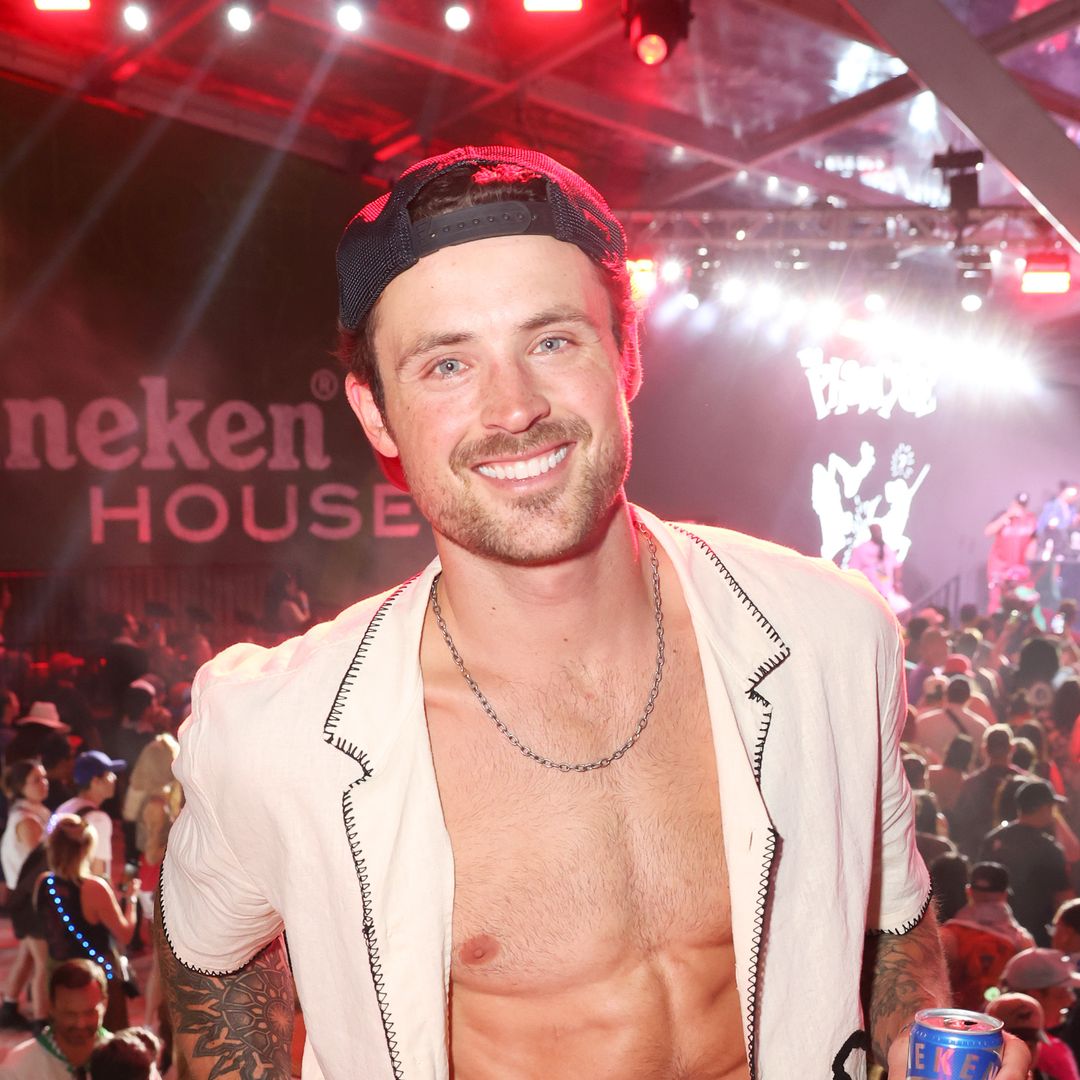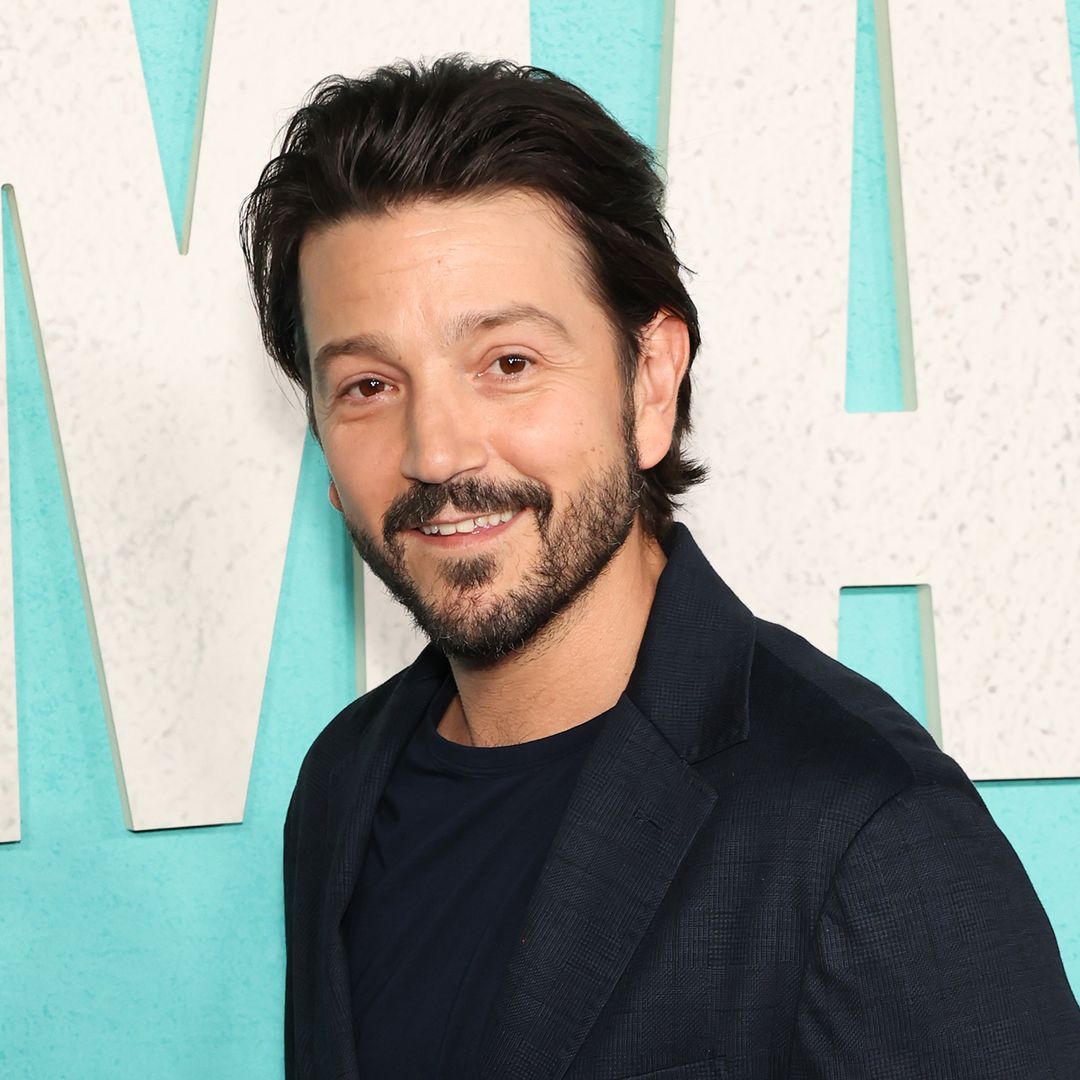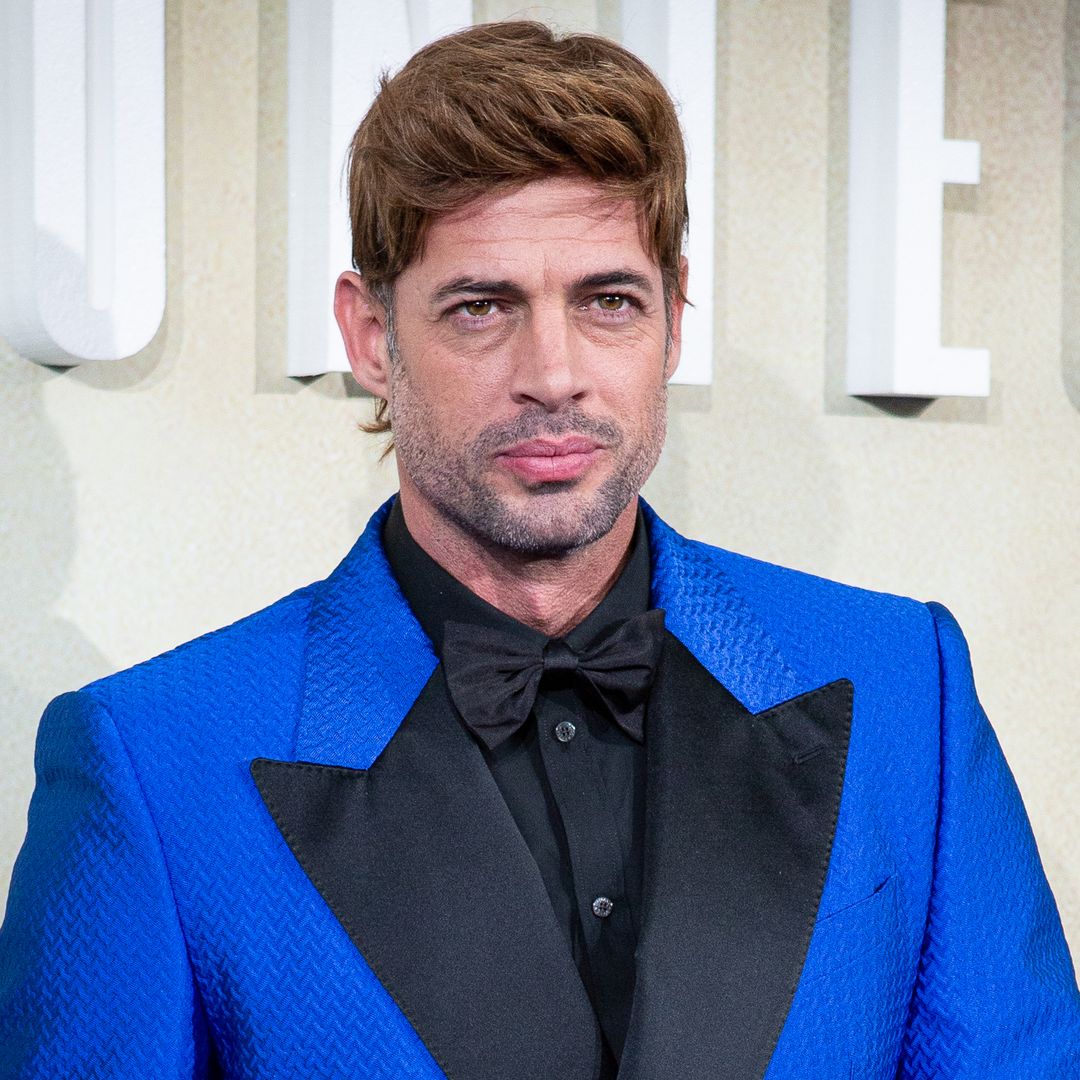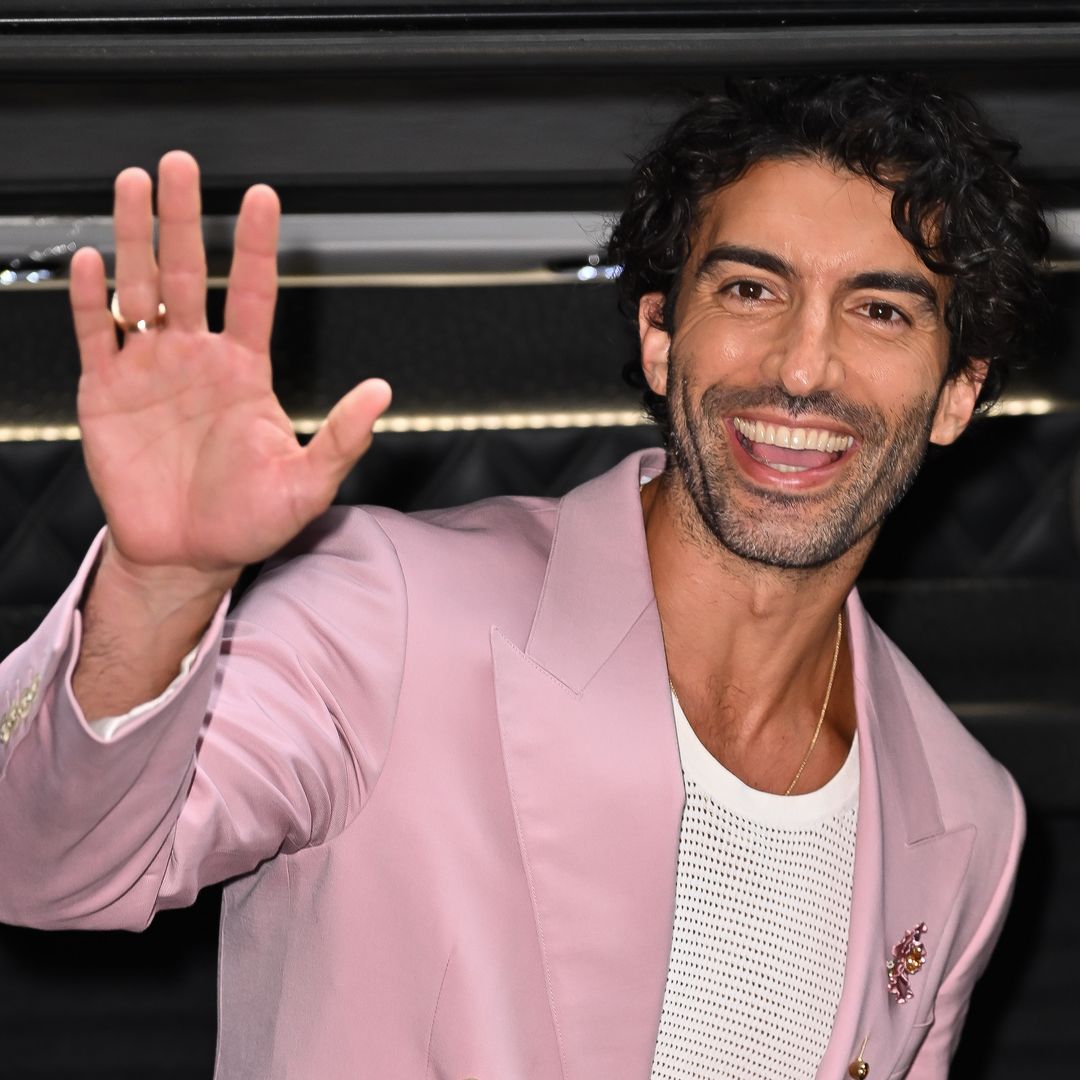Hilary Duff’s prankster husband Matthew Koma is going to have to find another platform for his jokes after being permanently banned from Twitter. The producer couldn’t help it after the Gwyneth Paltrow trial that captivated the world, and he used his account with a blue checkmark to impersonate the actress.
Elon Musk implemented a strict no-parody rule unless the account has the words parody in it. Koma changed his profile picture and name and began responding to tweets as if he was the Goop founder. It was all fun and games until Twitter support caught wind of it, and permanently banned his account.
He took to Instagram to announce the news and seemed pretty proud of his actions. “Thanks for all the kind messages today,” he wrote with a selfie. “Closure’s hard. But it’s a community like you guys that keeps me positive and looking forward to the next time I find the opportunity to impersonate a celebrity on a social media platform.”
It’s kind of the perfect time to get banned on Twitter as the platform slowly becomes a place of nightmares. Many celebrities have made their opinions known on the changes. Musk announced that legacy verified users would have their blue ticks removed from the app unless they paid the $ 8-a-month subscription for Twitter Blue.
Jack Black, who spoke to HOLA! About his role as Bowser in The Super Mario Bros. Movie gave his opinion at the red carpet premiere saying he won’t be paying for the mark, and is going to see how far Musk takes his rules, trying to catch his bluff. Lebron James also announced he would not be paying .
Duff’s husband isn’t the only one that’s been banned on the app for impersonation. It became an ongoing gag when Musk took over the app to impersonate the billionaire and others. Ethan Klein of the H3 podcast was banned after parodying the Tesla founder. His account was later reinstated.
The ability to easily create a parody account with Twitter Blue actually led to one pharmaceutical company, Eli Lilly lowering their prices after one hero impersonated the company, announcing that they were going to make insulin free. They apologized for the misconception in November before announcing that it would cap insulin prices at $35 a month.
,type=downsize)

